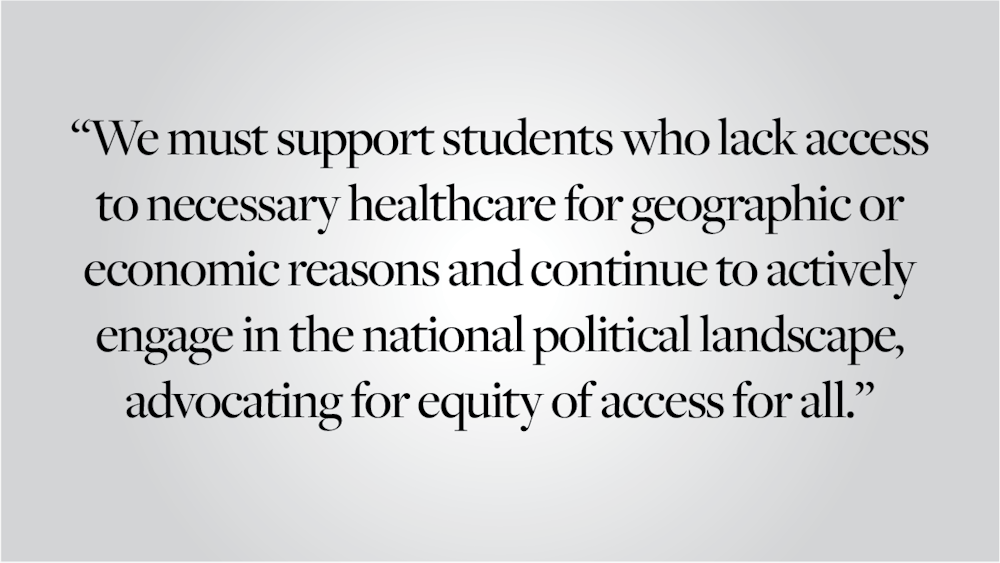The Alabama Supreme Court’s recent decision legally defining frozen embryos as children has already limited access within the state to reproductive care, such as in vitro fertilization. This decision is a striking reminder of the privileges we enjoy in a state like Rhode Island and at a school like Brown, which offer us relatively unrestricted access to reproductive care, contraception and other forms of healthcare. This freedom of access is not guaranteed in all places and circumstances.
Last semester, Brown Health Services announced that it would offer free, over-the-counter emergency contraception to Brown undergraduate, graduate and medical students. The University’s dedication not only to providing emergency contraception and other resources for reproductive health, but also to making them free for all students, demonstrates that Brown values access to reproductive care. Even within a state like Rhode Island with relatively generous reproductive healthcare access, ranking 12th nationally in 2022 for reproductive rights, we commend this purposeful commitment. Direct access through Student Health Services also allows students to bypass the complex US healthcare and insurance system, including copays and other prohibitive fees.
Many students at Brown are from states or other countries where reproductive and contraceptive care aren’t guaranteed. Only at Brown can they find affordable, accessible and even legal forms of this type of necessary care. Brown students, especially those from places with protections for health care, shouldn’t take this access for granted or see it as inevitable.
The Alabama legislature has responded relatively quickly by passing legislation meant to specifically protect IVF clinics from civil or criminal liability. This legislation, however, could already be vulnerable to challenges to its constitutionality and scope. More importantly, this challenge to IVF is only the latest development in a continued trend of legal decisions threatening nationwide access to all types of reproductive-related care. This chain includes case Dobbs v. Jackson Women’s Health Organization and the forthcoming Alliance for Hippocratic Medicine v. FDA case, which could limit access to one of the most common drugs used for non-surgical abortion. The type of emergency contraception offered for free by Brown isn’t immune to the repercussions of federal ruling. The same anti-abortion lobbying groups and organizations that have prompted these cases to reach the Supreme Court also oppose emergency contraception like Plan B — it’s just further down in the line of fire.
As Brown students, when we read about Supreme Court decisions in Alabama or upcoming deliberations at the highest US court, we shouldn’t dismiss them as irrelevant to us, even if we are currently protected from their effects. Ultimately, the University has to abide by evolving state and federal law regarding contraception and reproductive care. And Brown students also have to consider carefully the regulations in their home states or the states where they relocate after college. We cannot simply enjoy our sense of security within the Brown bubble. We must support students who lack access to necessary healthcare for geographic or economic reasons and continue to actively engage in the national political landscape, advocating for equity of access for all.
Editorials are written by The Herald’s editorial page board and aim to contribute informed opinions to campus debates while remaining mindful of the group’s past stances. The editorial page board and its views are separate from The Herald’s newsroom and the 134th Editorial Board, which leads the paper. This editorial was written by the editorial page board’s members Paul Hudes ’27, Paulie Malherbe ’26, Laura Romig ’25, Alissa Simon ’25, and Yael Wellisch ’26.





